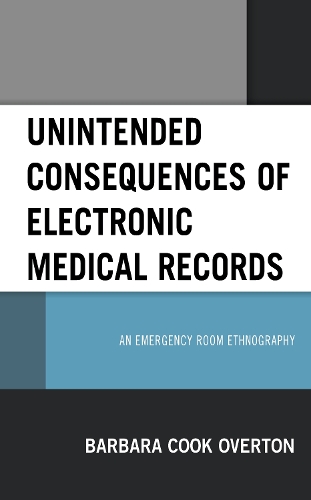
Unintended Consequences of Electronic Medical Records: An Emergency Room Ethnography
(Hardback)
Publishing Details
Unintended Consequences of Electronic Medical Records: An Emergency Room Ethnography
By (Author) Barbara Cook Overton
Bloomsbury Publishing PLC
Lexington Books
13th December 2019
United States
Classifications
Professional and Scholarly
Non Fiction
First aid and paramedical services
610.285
Physical Properties
Hardback
280
Width 161mm, Height 231mm, Spine 26mm
594g
Description
Unintended Consequences of Electronic Medical Records: An Emergency Room Ethnography argues that, while electronic medical records (EMRs) were supposed to improve health care delivery, EMRs unintended consequences have affected emergency medicine providers and patients in alarming ways. Higher health care costs, decreased physician productivity, increased provider burnout, lower levels of patient satisfaction, and more medical mistakes are just a few of the unintended consequences Barbara Cook Overton observes while studying one emergency rooms EMR adoption. With data collected over six years, Cook Overton demonstrates how EMRs harm health care organizations and thrust providers into the midst of incompatible rule systems without appropriate strategies for coping with these challenges, thus robbing them of agency. Using structuration theory and its derivatives to frame her analysis, Cook Overton explores ways providers communicatively and performatively receive and manage EMRs in emergency rooms. Scholars of communication and medicine will find this book particularly useful.
Reviews
Barbara Cook Overton's book documents the profound and pervasive changes brought by the transition from paper charts to EHRs.It can be relevant to a broad audience, including not only scholars of health systems, but also policymakers, hospital managers, providers of care, and health IT designers. The final chapter of the book provides useful practical suggestions on how to make the EHR system better serve the interests of the healthcare community.
-- "Sociology of Health & Illness"Author Bio
Barbara Cook Overton holds a PhD in communication studies from Louisiana State University.
